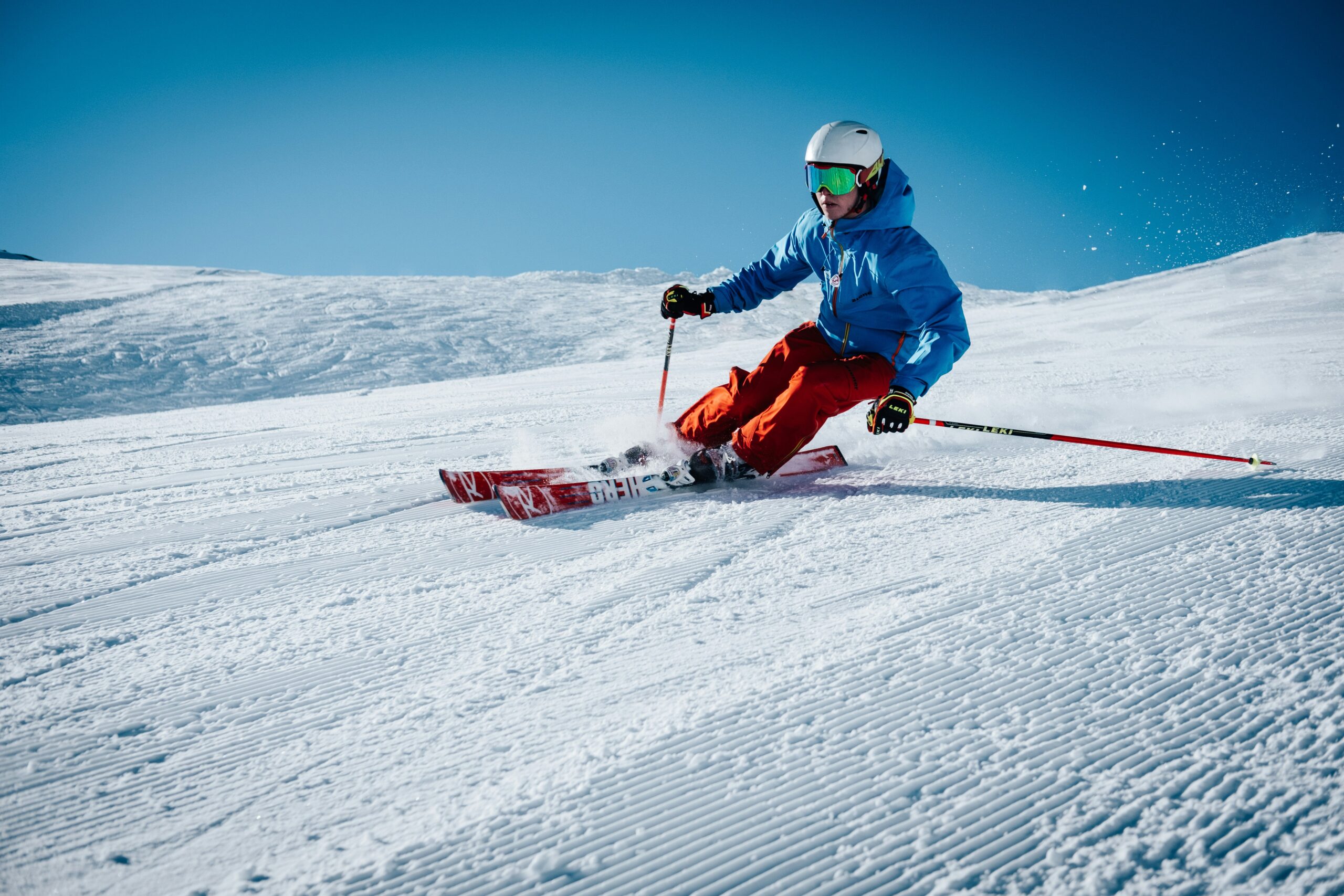
Skiing and climbing may seem like vastly different sports—one focused on descending snowy slopes, the other on scaling vertical rock or ice—but they both demand incredible mental strength. While the physical elements of each activity are evident, it is the mental toughness that sets apart a great skier or climber from the rest. Beyond the gear and the environment, skiing and climbing test courage, focus, resilience, and the ability to remain calm in high-pressure situations. These qualities, though developed in different contexts, are surprisingly similar and essential to both pursuits.
Facing Fear in the Moment
Whether you’re standing at the top of a double black diamond or looking up at a steep granite face, fear is an everyday companion. Both skiing and climbing push athletes to confront fear head-on. The slopes and cliffs are unpredictable and can be hazardous. In skiing, a wrong turn at high speeds can lead to a fall or collision. In climbing, even with safety equipment, the risk of falling lingers in the back of every climber’s mind.
What unites both athletes is their ability to manage this fear. They don’t ignore it; instead, they acknowledge it, prepare for it, and learn how to function alongside it. Fear doesn’t disappear, but with experience and training, it becomes something they can control rather than be controlled by. This emotional control enables them to keep moving forward, even when every instinct tells them to stop.
Focus as a Lifeline
In both sports, losing focus, even for a moment, can have serious consequences. Skiers must read the terrain ahead, anticipate changes in snow conditions, and adapt quickly to the changing conditions. Climbers must concentrate on handholds, footholds, and body positioning, often for hours at a time. Both require a level of concentration that goes beyond everyday experiences.
This intense focus becomes almost meditative. Athletes describe entering a mental “flow” state, where all outside distractions vanish and only the task at hand remains. This state is not just enjoyable—it’s essential for performance and safety. Whether carving through trees on a powder day or navigating a challenging overhang, staying fully present is key.
Resilience Through Adversity
Skiing and climbing both involve setbacks. Weather can change suddenly, routes can be more challenging than expected, and falls are a natural part of the learning process. In both disciplines, resilience becomes a critical skill. Athletes must learn how to get back up—literally and mentally—after a fall or failure.
This resilience isn’t built overnight. It grows with each challenge faced and overcome. Skiers might battle freezing temperatures and icy runs. Climbers may face exhaustion on multi-pitch routes or get turned around by storms. Through these trials, they develop a mental toughness that extends far beyond sport. It becomes a part of who they are—people who don’t give up when things get hard.
Preparation and Confidence
Neither skiing nor climbing allows for carelessness. Preparation is vital, and with it comes confidence. Knowing your equipment, route, limits, and conditions builds a mental framework that enables athletes to perform well under stress. This preparation reduces anxiety and allows for better decision-making when it matters most.
Confidence, however, is not arrogance. In both sports, overconfidence can be a dangerous trait. The mentally strong skier or climber respects the mountain and understands that confidence must be backed by skill and preparation. They know when to push and when to back off—a balance that comes only with mental maturity.
The Joy of Challenge
What keeps people returning to skiing and climbing, despite the risks and demands, is the unique joy found in overcoming challenge. The satisfaction of conquering a difficult run or reaching a summit is gratifying. These moments prove to athletes that they are capable of more than they once believed. That growth, that expansion of limits, fuels a positive mental cycle.
It’s not just about thrill-seeking. It’s about personal development. Each descent or ascent teaches lessons about patience, persistence, and self-belief. The mountain becomes both a testing ground and a teacher, shaping not only the body but also the mind.
Nature’s Role in Mental Clarity
Both skiing and climbing place athletes in powerful natural environments. The solitude of a backcountry slope or the silence of a high alpine wall can bring a sense of peace and clarity. In these moments, the mind is free from daily stressors and filled with a sense of awe.
This connection to nature has a positive impact on mental health. Many athletes describe a feeling of grounding or emotional reset after time in the mountains. The combination of physical activity and natural beauty enhances mood, reduces anxiety, and fosters a sense of well-being. The mental strength developed in these sports isn’t just about enduring hard things—it’s also about finding joy and meaning in the process.
The Shared Spirit of Skiers and Climbers
Despite their differences in technique and terrain, skiing and climbing share a familiar spirit—one of mental endurance, respect for nature, and profound personal growth. They teach athletes how to navigate fear, stay focused, and recover from challenges. These cognitive skills don’t stay on the mountain; they spill over into everyday life, helping athletes face challenges in work, relationships, and personal goals.
Ultimately, skiing and climbing are more than just sports; they are a way of life. They are disciplines that shape character and build mental strength in ways few other activities can. From powder-covered peaks to vertical cliffs, the journey is the same: mastering the mind to move the body toward greatness.